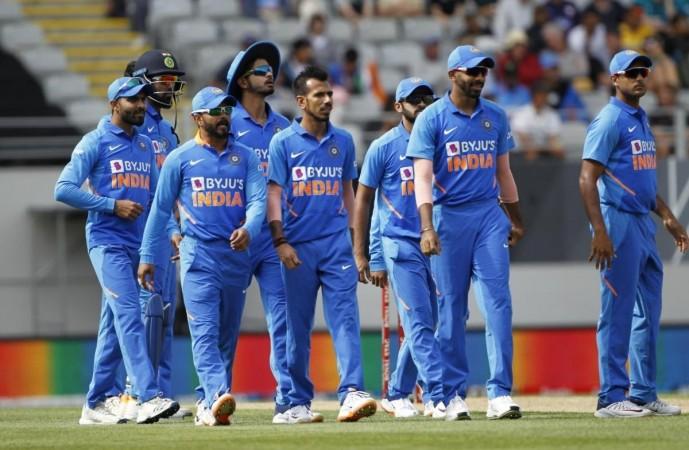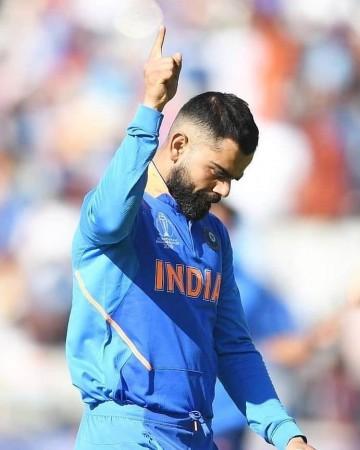The defeat against Pakistan and New Zealand in the T20 cricket World Cup has brought about a reality check for Indian cricket. The disappointment was more in the minds of the millions of Indian cricket followers, who had been made to think that Indian cricket was better than it's ever been before. The superstars who adorn the Indian colours are professionals who are fitter and more skilful than the Indian cricketers of yore.
The Indian economy, a decade ago, went through the same euphoria of "India shining" and a feeling that intellectually we are the rising brains who will shortly control the world. A positive approach and attitude are great to get one to believe in themselves. However, understanding one's ability and capability is what finally prevails in order to be successful.

Sunil Gavaskar, Sachin Tendulkar, Ravi Shastri, Dilip Vengsarkar, Mohinder Amarnath and loads of former cricketers were successful not because they could play all the shots in the book but because they knew when to do so. In cricket, the ability to apply one's game to the prevailing conditions and to play accordingly is half the battle won. The basis to do so is naturally for the team's benefit and this is an area where, one feels, the present Indian cricketers are lacking.
A cricketer reaches the highest level by sheer cricketing common sense. Similarly, as in all the other professions, a cricketer acquires or is born with a natural cricketing instinct, based on their experiences and capabilities.
The great Garry Sobers, Kapil Dev, Ian Botham, Vinoo Mankad may not have got a distinction as students in academics but on the cricket field, they were masters in the way they thought and analysed the situation. Their "cricketing brains" was what made them match winners. One feels that the element of thinking for themselves seems to have disappeared in most of the present-day cricketers.
One can blame it on the progress made by technology, technical tools and professional, certified and accomplished coaches who draw up plans to implement the strategy. However, one feels that many cricketers are getting confused between their natural thought process and the roles that have been assigned to them.
The Indian cricketers seem to be prime examples of this. They have played some wonderful cricket in the last few years. However, they have succumbed to pressure when most required and especially in an ICC-organised World championship. The burden of responsibility of winning a major cup seems to weigh on the Indian cricketers to such an extent that their eagerness and anxiety is driving them to despair.
An Indian cricketer at present is a well-paid professional. Most of them have a rags-to-riches tale to relay. This, one feels, makes them an easy target for the famous corporate jargon "value for money" and millions of their fans and followers expect them to live up to it. The hopes and wishes of the fan following puts on additional pressure on the cricketer who understands the bricks-bats and scrutiny they would receive if they fail.

India's defeat against Pakistan was a deadly blow to the team's morale. A billion Indians see this not as a sport but as a battle of supremacy. The attack on Md. Shami for his below-par performance in the match was another of the immature reactions that one sees every time an Indian cricket team fails.
One hoped that the Indian side would have been strong enough to put themselves mentally past the loss and the criticism. Unfortunately, each one of them was deeply affected by it and one could feel the tension and uncertainty when they took to the field to bat and bowl against New Zealand.
Cricket is very much of a mind game and with New Zealand taking the early initiative, the Indian team looked like a side that had got lost in a maze.
India does still stand a mathematical chance of qualifying for the semifinals but that would depend solely on them winning against Scotland and Namibia by a large margin and New Zealand losing their match against Afghanistan.
The regular Indian defeats on a world cup platform in the last seven years remind one of the stigmas that got attached to the South African side of being "chokers". India is showing signs of this symptom especially in the way their giant superstar batters seem to collapse when most required.
What went wrong?
The perennial question which is being asked by one and all is, "What went wrong with the Indian side"? India boasts of being able to field three International sides and have the world's leading batters and bowlers, hence it could not be the quality and skills of their players.
Was it the six months of being away from home, playing cricket and living in a bio-bubble that made them homesick and depressed? The claustrophobic atmosphere of being day and night with each other?
The appointment of MS Dhoni as a mentor? This could have been seen as a message that the BCCI were not happy with the existing think-tank.
Was it the timing of Virat Kohli's announcement of stepping down from the T20 Indian captaincy after the World Cup, as well as the coach and support staff stepping down?
Was it the selection of the playing eleven? This is always a point to ponder over when a team loses. However, the combination could always be debatable. One never knows. All this could have had a significant effect on the dressing room.
Diwali is an Indian festival that also symbolises the victory of light over darkness. The Indian team requires all the blessings and prayers to give them that light of hope.
In T20 cricket one never knows till the last ball is bowled!

















